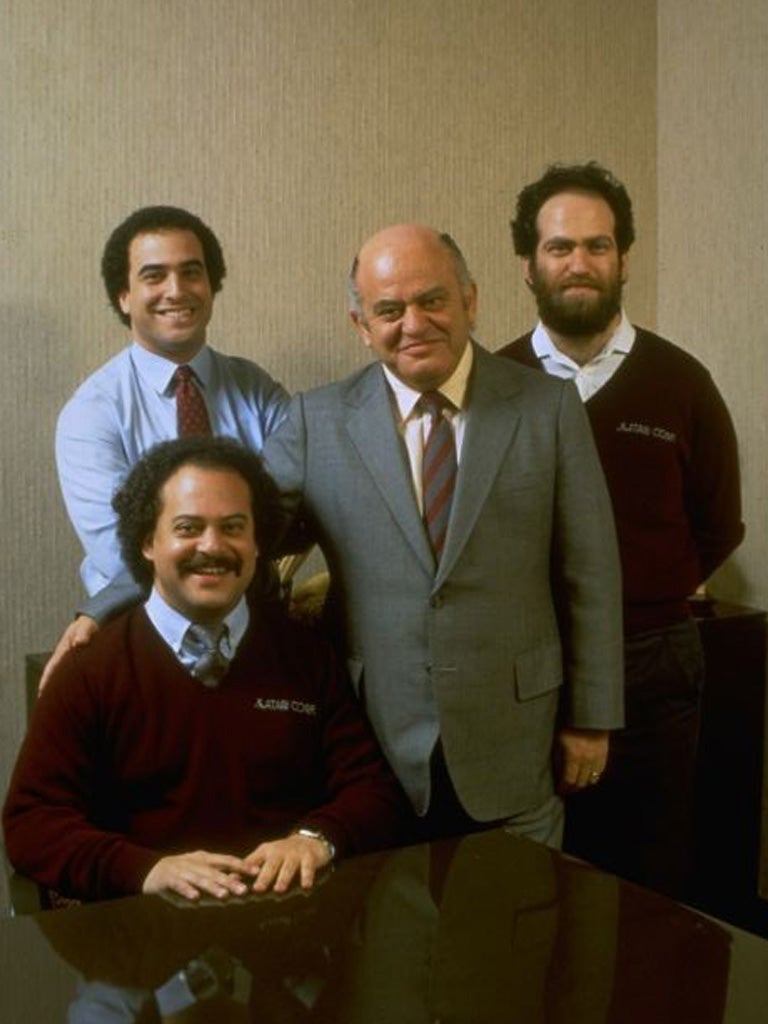Jack Tramiel: Trailblazer for the personal computer

Jack Tramiel was the businessman behind the first all-in-one personal computer, the Commodore PET, and the world's best-selling home computer, the Commodore 64. He was instrumental in bringing powerful, low-priced machines to ordinary people. Or, as he would say, "We need to build computers for the masses, not the classes".
He was born Jacek Trzmiel in 1928 in Lodz, Poland. When the German army invaded in 1939 his family was ordered to move into the ghetto, along with 200,000 others. Five years later they were sent to Auschwitz, where his mother remained while he and his father were assigned to building work at the Hanover-Ahlem slave labour camp.
His father died at Ahlem, while Tramiel found freedom when the camp was liberated by the US Army in April 1945. As Vernon Tott, one of the group of rescuing soldiers, remembered: "We were witnessing hell on earth... Piles of dead bodies. Men in ragged clothing that were just skin and bones..."
Two years later Tramiel left Germany for New York. "I figured I could handle just about anything," he later recalled, telling how he worked at odd- jobs and as a cab driver before joining the US military as a repairman in an office machine workshop.
Upon returning to civilian life he set up a typewriter repair and import business, Commodore Portable Typewriter. When he discovered that US laws restricted the import of machines from Communist Czechoslovakia he moved to Toronto and founded Commodore Business Machines in 1955.
Faced by competition from Japanese typewriter manufacturers during the 1960s, Tramiel turned the company's focus towards adding machines, then electronic calculators. When these, too, became unprofitable, in 1976 Commodore acquired MOS Technology, a chip manufacturer, whose staff included the microprocessor engineer Chuck Peddle. Peddle convinced Tramiel that a personal computer could be a viable commercial project.
Commodore launched their PET (Personal Electronic Transactor) computer in early 1977 at the West Coast Computer Faire, six months ahead of the Apple II. The new machine had 4,000 bytes of memory, a keyboard, monochrome monitor and a cassette recorder for storing programs. With a price of $599 and $3 million worth of orders from its first newspaper adverts, Commodore had started a personal computer revolution.
Three years later came the VIC-20, boasting colour graphics and a range of games from Commodore and other companies. This was followed in 1982 by the Commodore 64, of which some 17 million were sold, making it the best-selling home computer of all time.
Tramiel gained a reputation for being hard on his suppliers and fellow executives. "Business is war," he would say, going on to explain: "When I get depressed, I watch the Patton movie. I believe in that. I don't think you can sit on your butt. You have to know who your competitor is – who your enemy is. You have to have better tanks. You have to have better equipment to be able to win. And you can't just wait for the Pentagon to tell you what to do. You have to do it."
Shedding more light on his management style, Greg Pratt, who worked with Tramiel at Commodore, said in a 1985 interview, "Jack Tramiel is a benevolent dictator. But he's the brightest man I ever met."
Although the company was by now immensely successful, with sales of around $1 billion in 1984, Tramiel decided to leave Commodore after disagreements with the chairman Irving Gould and other board members. He used his considerable personal fortune to acquire a majority share in the games manufacturer, Atari, from Warner Communications. With the advent of IBM's Personal Computer, low-priced "clones" and increased competition from computer game consoles, Commodore announced bankruptcy in 1994. Atari was sold in 1996.
In retirement Tramiel supported a variety of charitable projects, including the Holocaust Memorial Museum, which he co-founded in 1993. A plaque on the museum wall is inscribed "To Vernon W Tott, My Liberator and Hero". Tramiel said: "I have to make sure that this man is going to be remembered for what he has done. His family should know that he is to us, a hero. He's my angel."
Jacek Trzmiel (Jack Tramiel), businessman: born Lodz, Poland 13 December 1928; married 1947 Helen Goldgrub (three sons); died Palo Alto, California 8 April 2012.
Subscribe to Independent Premium to bookmark this article
Want to bookmark your favourite articles and stories to read or reference later? Start your Independent Premium subscription today.

Join our commenting forum
Join thought-provoking conversations, follow other Independent readers and see their replies